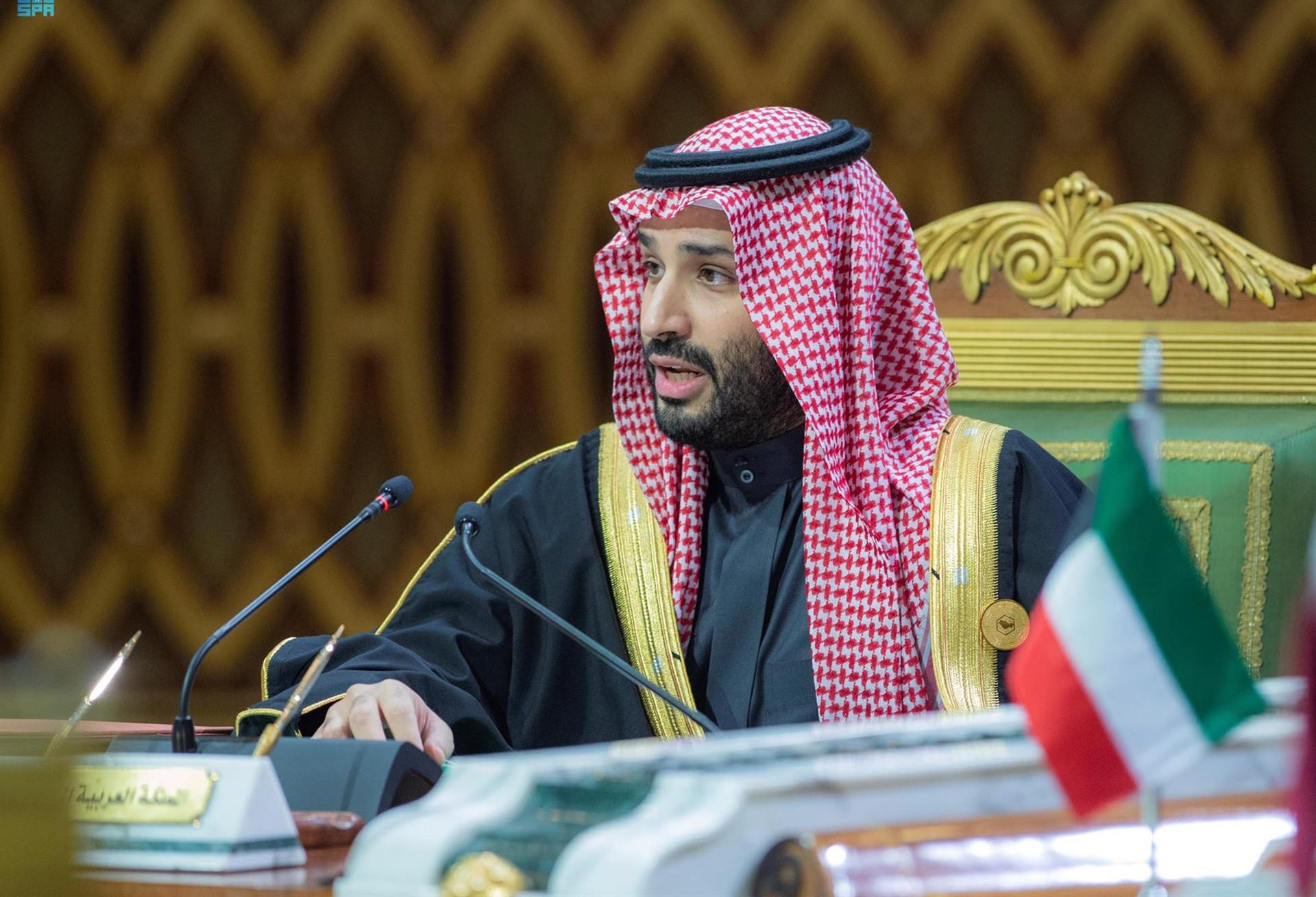Saudi seeks 'serious' approach to Iran nuclear programme
RIYADH-Agence France-Presse

Saudi Crown Prince Mohammed bin Salman on Dec. 14 called for an "effective and serious" approach to Iran’s ballistic and nuclear programme, during a Gulf summit in Riyadh.
The de facto ruler was representing his country at the Gulf Cooperation Council meeting, which brought together Saudi Arabia, the United Arab Emirates, Bahrain, Kuwait, Oman and Qatar.
Saudi authorities have not explained the absence of his 85-year-old father King Salman.
"It is important to have an effective and serious approach to Iran’s nuclear and ballistic programme," the crown prince told the summit.
Last month, the United States and GCC countries accused Iran of causing a nuclear crisis and destabilizing the Middle East with ballistic missiles and drones.
They urged the Iranian administration to seize the "diplomatic opportunity" stemming from the resumption of talks in Vienna aimed at salvaging a 2015 nuclear agreement between Iran and world powers.
In 2018, former president Donald Trump pulled the U.S. out of the accord, which provided Iran with sanctions relief in return for curbs on its nuclear programme, prompting Tehran to begin rolling back on its commitments.
After a five-month pause, the talks resumed on November 29 but are hanging in the balance.
Saudi Foreign Minister Prince Faisal bin Farhan told a press conference after the summit that the evolution of the Vienna negotiations "is worrying and does not create optimism".
He said that a Saudi presence at the talks "would allow us to be close to solutions since we are one of the countries most threatened".
"Iran maintains an intransient position... and that is certainly worrying," he said.
GCC secretary-general Nayef al-Hajraf said the summit had called for prohibiting Lebanese group Hezbollah "from carrying out its terrorist activities and supporting terrorist militias that threaten the stability of Arab countries".
Lebanon’s ties with Gulf states have grown increasingly strained in recent years because of the growing influence of Iran-backed Hezbollah.
A Lebanese minister’s recent remarks on the Saudi-led intervention in Yemen’s war sparked a row with Gulf countries that has exacerbated Lebanon’s multiple crises.
Yemen’s Iran-backed Huthi rebels have repeatedly targeted Saudi Arabia in cross-border attacks, using drones and missiles.
In a final summit communique, the GCC countries agreed on "the importance of coordinating to achieve a unified and effective foreign policy that protects the interest of the Gulf peoples".
They also agreed on the need to "diversify" their economies, which rely heavily on oil and gas.
Prince Mohammed called for "further coordination of efforts in the face of multiple challenges" and emphasized the need to "unify positions to strengthen the role" of the GCC on a regional and international level.
The summit come almost a year after Saudi Arabia, the UAE, Bahrain and Egypt agreed to restore relations with Qatar, after severing ties with Doha in 2017.
The countries had claimed Qatar was too close to Iran and backed radical Islamist groups, allegations Doha has always denied.
Shiite-majority Iran and its Sunni rival Saudi Arabia have held several rounds of talks since April aimed at improving ties since they cut relations in 2016.
The Saudi crown prince visited GCC countries including Qatar last week.
















